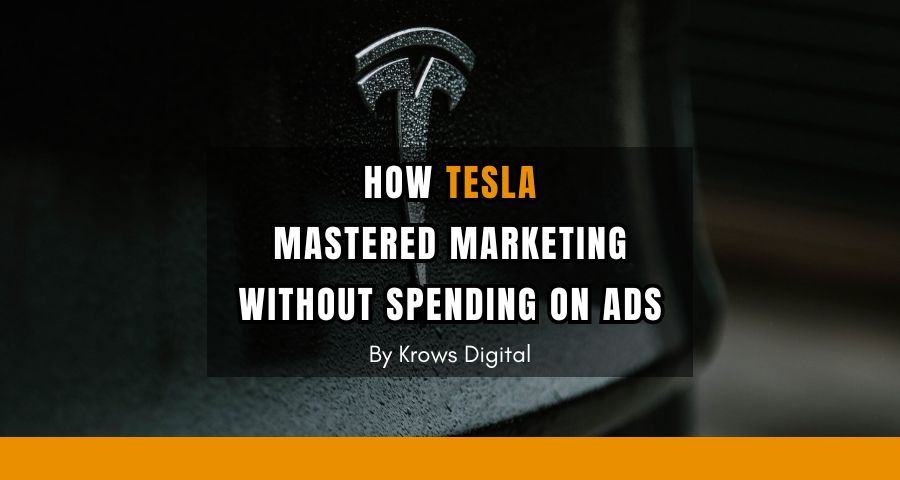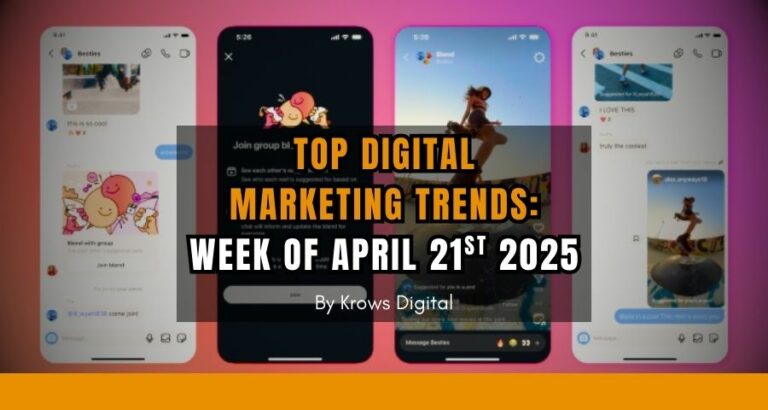Tesla’s marketing strategy is unconventional and stands out due to its minimal use of traditional advertising. Instead, the company focuses on building its brand through direct sales, word-of-mouth marketing, and Elon Musk's social media presence. Tesla leverages online sales, customer advocacy through its referral program, and viral product launches to create buzz without a big advertising budget. The strategy centers around customer experience, innovation, and product quality, proving that great products can often market themselves.
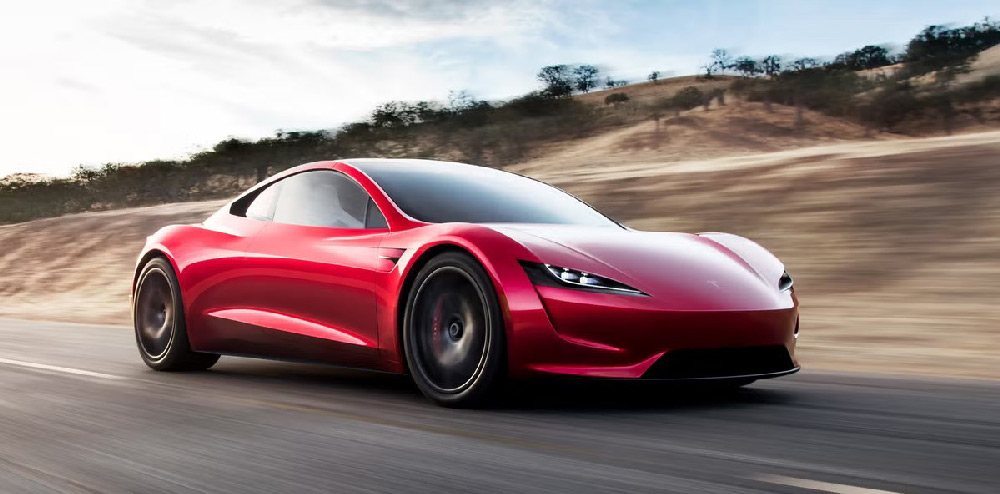
If you’re looking for ways to adapt a similar strategy to your business, Krows Digital can guide you through building strong customer engagement and leveraging social media, ensuring your brand shines in competitive markets.
1. Tesla’s Audience: Targeting the Right People
Tesla targets a wide range of consumers, from tech enthusiasts and eco-conscious buyers to those who value luxury. Their innovation in electric vehicles (EVs) and advanced technology attracts early adopters and environmentally aware consumers. With sleek designs and high-end performance, Tesla also appeals to luxury car buyers, positioning itself alongside traditional premium brands like BMW and Audi.
By offering cutting-edge products that align with these values, Tesla has mastered the art of reaching diverse audiences through minimal advertising.
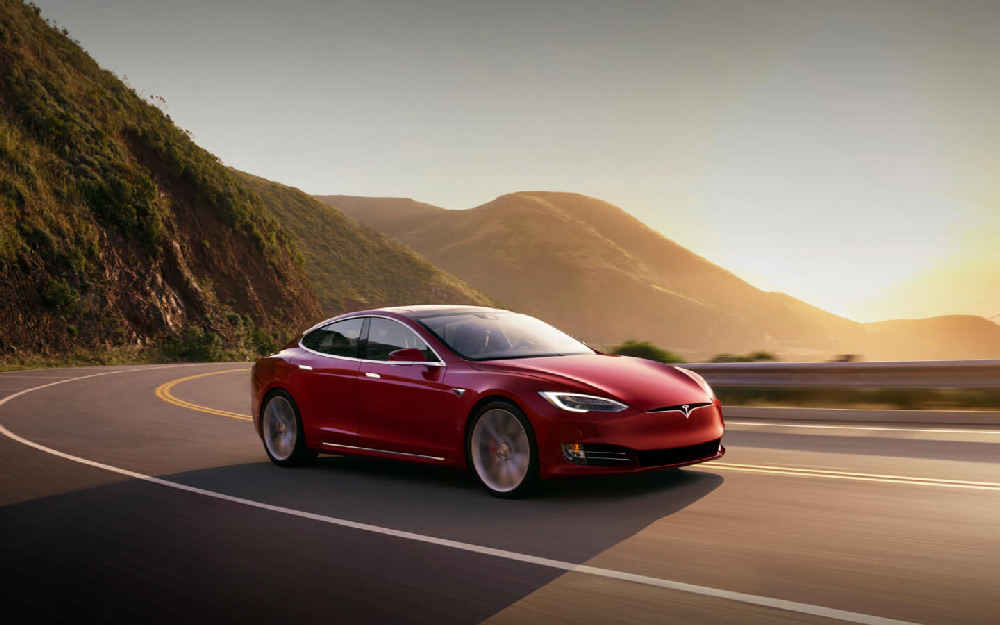
2. Direct-to-Consumer Model: Owning the Sales Process
One of Tesla’s key innovations is its direct-to-consumer sales model. Unlike traditional automakers that rely on dealerships, Tesla manages its entire sales process online or through Tesla-owned showrooms. This allows them to offer a seamless customer experience without involving third-party dealerships.
Customers can configure and purchase their cars online, making the process convenient and efficient. By cutting out dealerships, Tesla can keep tighter control over its pricing, customer interactions, and overall experience, ultimately driving higher customer satisfaction.
This approach also allows Tesla to maintain consistent branding across all sales channels, ensuring that customers receive the same experience, whether online or in a showroom. If you’re considering how to build a strong direct-to-consumer strategy, adopting similar techniques could streamline your business.
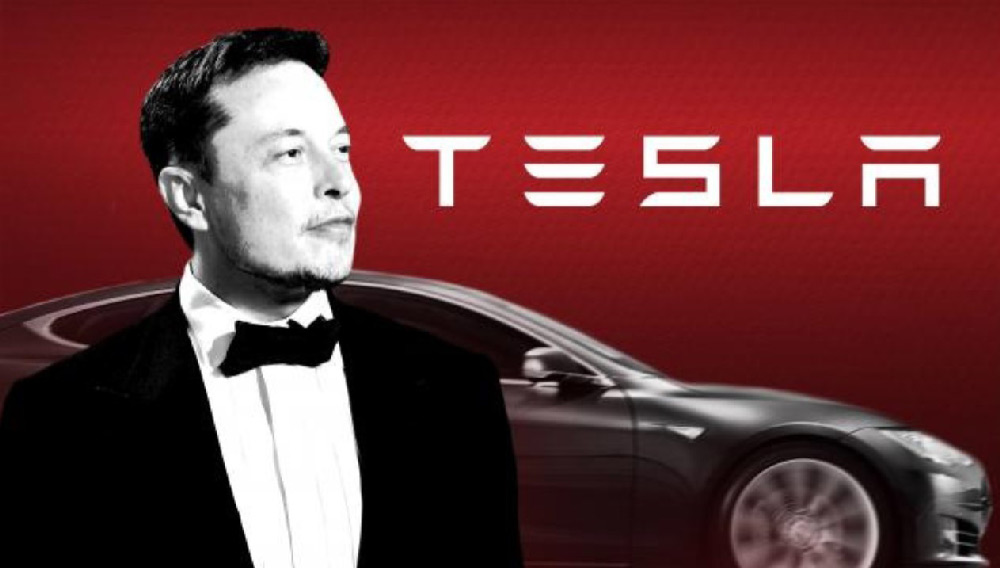
3. Elon Musk: Tesla’s Social Media Engine
Perhaps Tesla’s most unconventional marketing tool is its CEO, Elon Musk. Musk is highly active on Twitter, where he regularly shares updates, product announcements, and even memes. This direct communication with fans creates a unique relationship between the brand and its customers, keeping Tesla constantly in the spotlight.
Musk's tweets often generate viral responses and media coverage. For instance, the Cybertruck window-breaking incident during its launch became an internet sensation, but instead of hurting the brand, it fueled even more interest in Tesla’s futuristic truck.
Musk’s personal touch on social media sets Tesla apart from other brands that rely heavily on paid marketing. His constant interaction with followers, sharing product insights and engaging with fans, brings a human element to the brand that customers relate to.
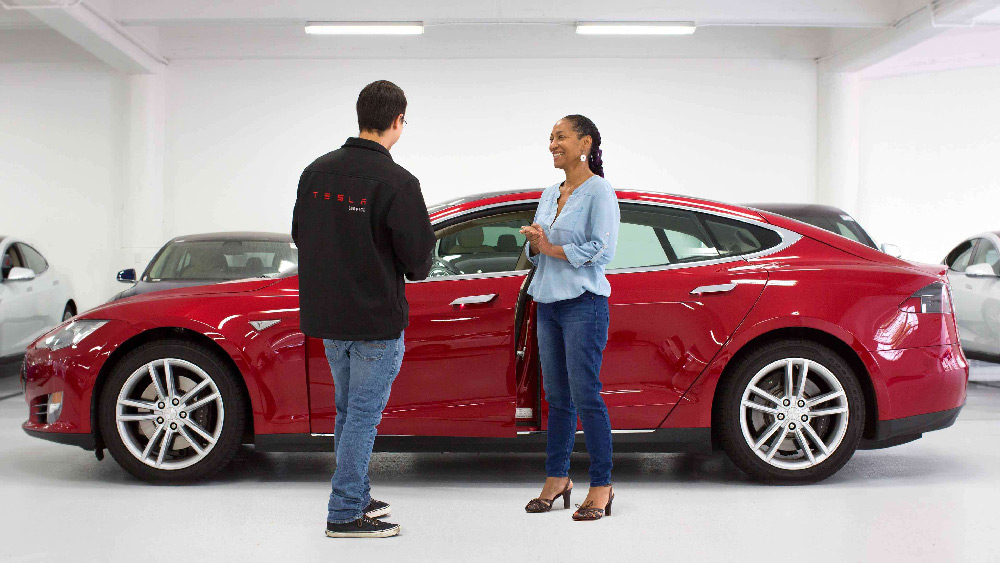
4. Referral Programs: Turning Customers into Advocates
Tesla’s referral program is a core part of its marketing strategy. Tesla incentivizes its existing customers to bring in new buyers by offering rewards like free Supercharging miles or special merchandise. This approach encourages happy customers to share their Tesla experience with others, effectively turning them into brand ambassadors.
The power of word-of-mouth can’t be overstated. Customers who love their products are more likely to refer friends and family, creating a steady stream of new customers without spending on traditional ads.
Tesla also excels at customer retention by focusing on quality products and customer support. Satisfied customers are the foundation of their referral-based strategy, helping to drive new sales organically.
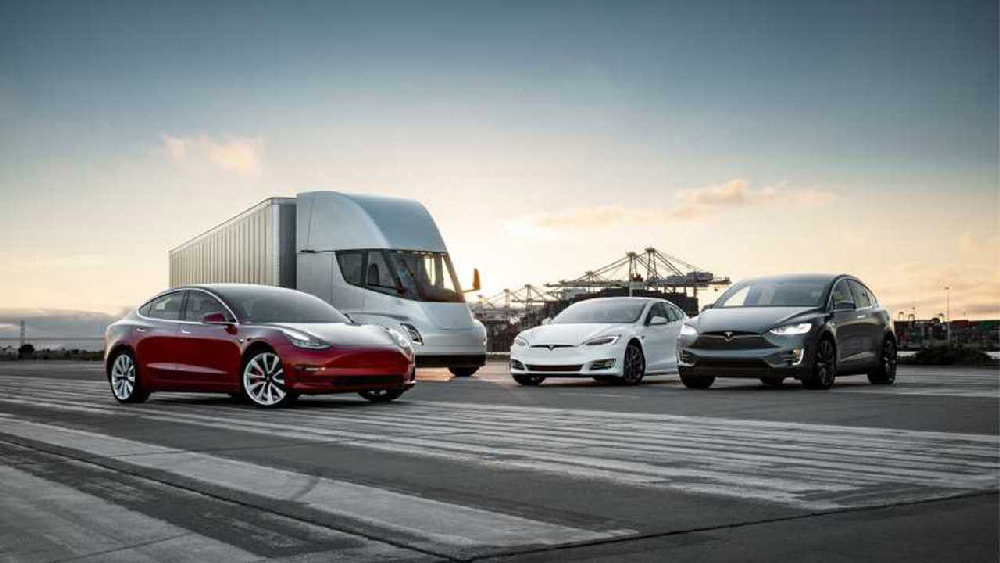
5. Minimal Paid Advertising: Letting the Product Speak
While other automakers spend millions on advertising, Tesla spends virtually nothing on traditional ads. Instead, the brand relies on organic buzz generated by its product launches, Elon Musk’s social media activity, and word-of-mouth.
Because Tesla's products are so innovative, they naturally generate media coverage. From their groundbreaking Autopilot technology to futuristic vehicle designs, Tesla stays in the public eye without a hefty marketing budget. Journalists, bloggers, and influencers are eager to cover Tesla’s news, giving the company free exposure across the internet.
If you want to implement a similar organic strategy, focusing on the quality and uniqueness of your product is key. Once you have something people love to talk about, word-of-mouth marketing can grow naturally.
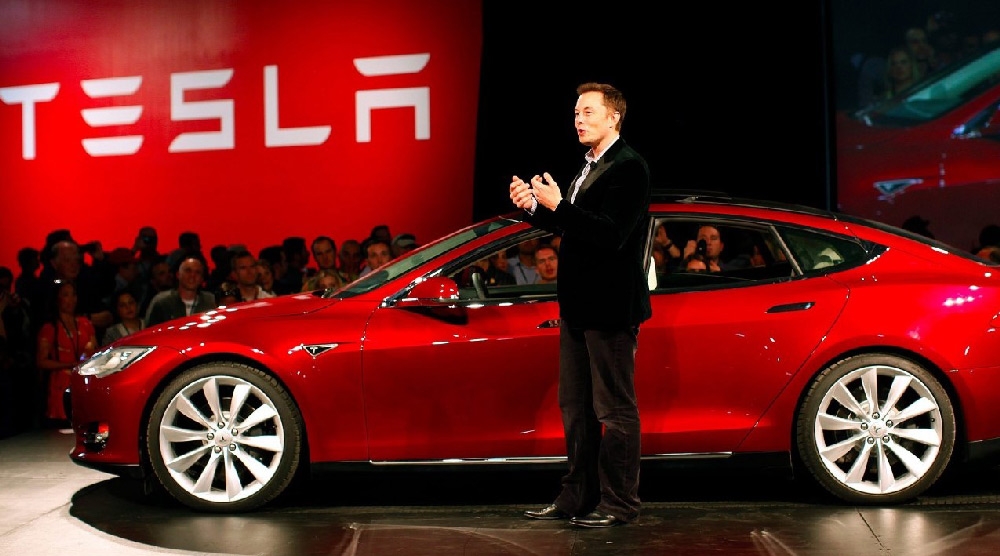
6. Exciting Product Launches: Creating Memorable Moments
Tesla’s product launches aren’t just announcements—they’re events. Each launch creates excitement, from the dramatic reveal of the Tesla Roadster to the viral spectacle of the Cybertruck. These live-streamed unveilings generate immense social media engagement, turning them into must-watch events.
One prime example is the Cybertruck launch, where the truck’s window shattered during the demonstration. Instead of seeing this as a failure, Tesla turned it into a viral moment, generating buzz worldwide. This “mistake” only made the event more memorable, helping Tesla dominate headlines for days.
For businesses, creating memorable experiences around product launches can be a powerful way to gain attention. Whether through creative storytelling or live experiences, creating buzz is all about engagement.
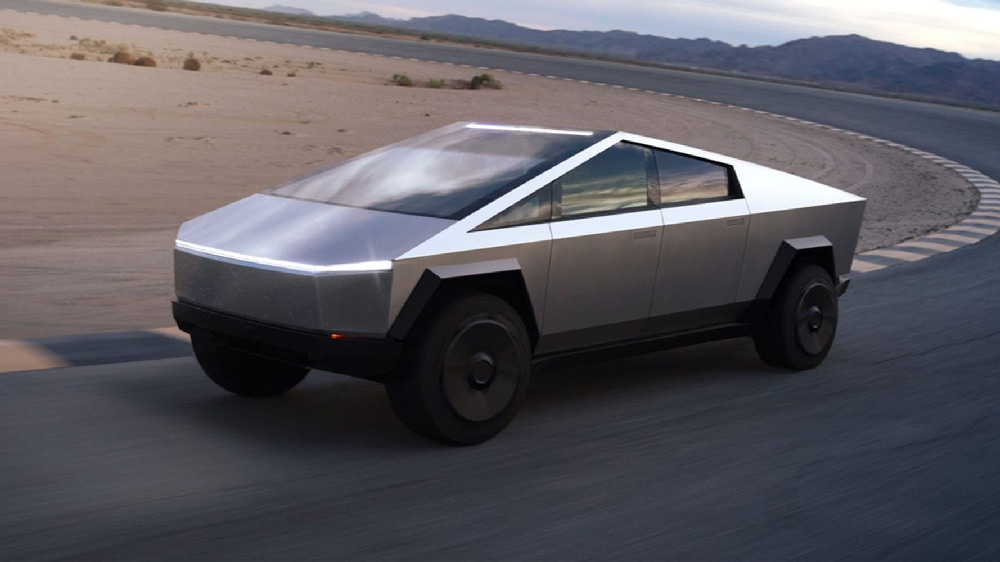
7. The Best Marketing: A Great Product
At the heart of Tesla’s success is its commitment to product quality and innovation. Their vehicles are known for being high-performing, technologically advanced, and eco-friendly. Tesla’s approach is simple: create exceptional products, and they’ll market themselves.
Tesla’s dedication to sustainability, advanced technology, and beautiful design sets it apart. Its electric vehicles outperform traditional cars, not just on eco-friendliness but also on speed, safety, and style. The brand doesn’t need to spend millions on marketing when the product itself attracts attention.
If your business can offer something truly exceptional, it can also benefit from this type of organic growth. Focusing on what makes your product unique is essential in attracting new customers and driving engagement.

Conclusion
Tesla’s marketing strategy is a powerful lesson in how to grow a brand without relying heavily on paid advertising. By focusing on direct sales, word-of-mouth marketing, and organic buzz, Tesla has successfully built a loyal customer base. This strategy shows that with the right focus on customer experience, innovation, and social engagement, businesses can thrive without a traditional marketing budget.
If you're interested in growing your business through innovative strategies, our team at Krows Digital is here to help. Let’s create a plan that drives engagement and helps you reach your full potential!

